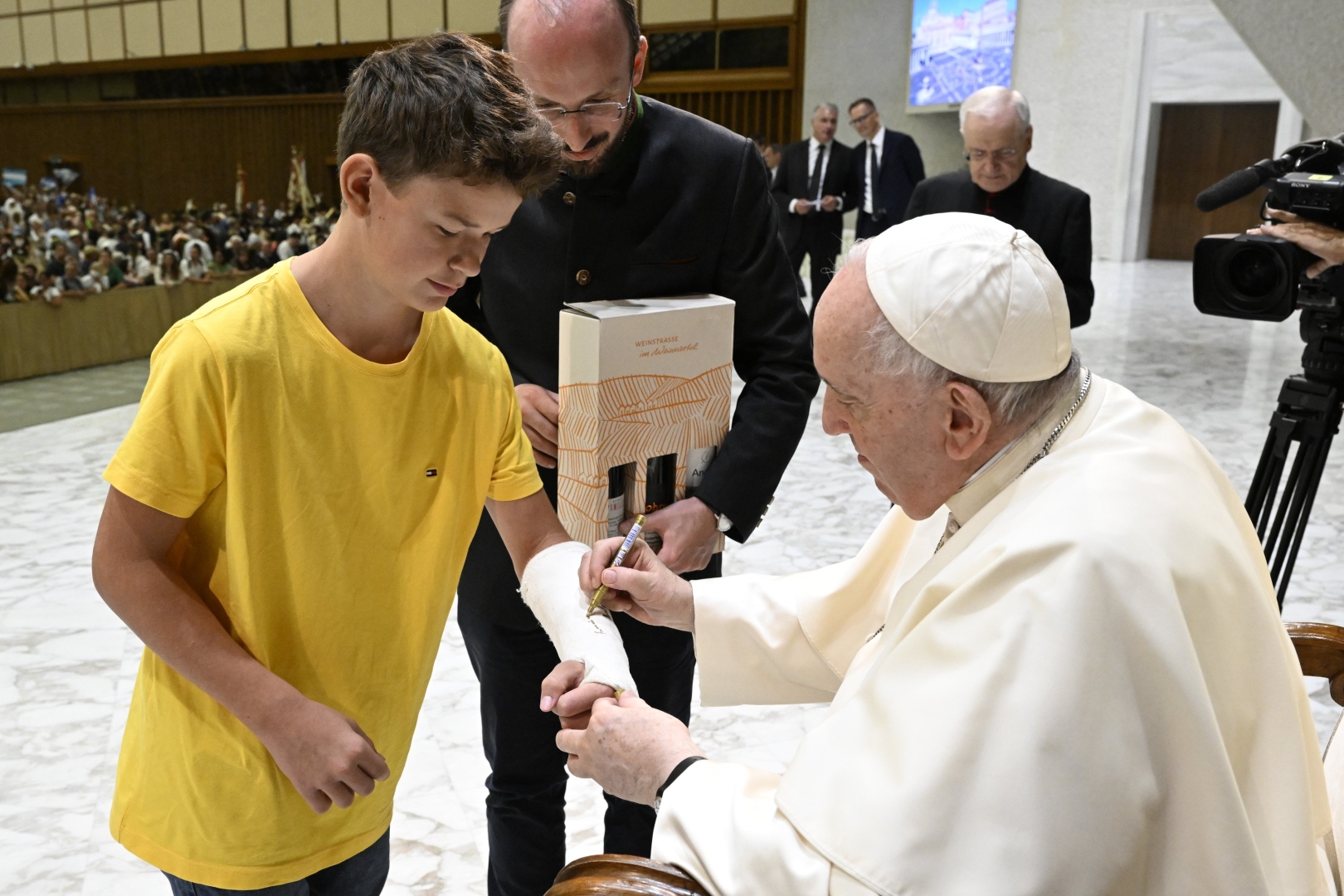Appreciating a religious leader from a non-religious perspective for whom poverty, inequality, climate change and migrants were key issues

It looks like yesterday when I tuned in to good, old fashioned radio to hear the announcement that Jorge Mario Bergoglio had become Pope. Looking back, that was way back in March 2013. It's surprising how fast 12 years can pass by. But those indeed were a meaningful, memorable dozen years.
Don't get me wrong. I wouldn't judge a Pope (or any religious or even a political leader) merely on the basis of the post held. On the contrary. Many people in high office just occupy space. They are eminently forgettable. They contribute little. They seldom build visions or give us reason for hope.
Pope Francis deserves to be remembered as basically a good man. Someone who was incidentally a religious leader, but a man of peace, of tolerance, or forgiveness. In humility, the head of one of the largest religious grouping worldwide, would remind us of his frailties and ask people repeatedly to "pray for me". He is the kind of leader that a troubled world of the 21st century badly needs. We have to be grateful for what we got from him.
In the first place, it was surprising that someone like Francis got elected Pope at all. Or, was it?
On the one hand, the Church was emerging from two tenures of rather Conservatives popes. After Joseph Alois Ratzinger (Benedict XVI) and Karol Józef Wojtyła (John Paul II), one expected that the College of Cardinals would have been further shaped in a way which enforced outdated, backward-looking values.
But religion (or, God, if you're devout) works in mysterious ways. Out of nowhere, a Latin American surfaced, that too a Jesuit and a man with his heart in the right place.
Some will judge Francis for having overhauled the Vatican to allow any baptised lay Catholic, including women, to head most departments in the Catholic Church's central administration. Or the fact that he placed more women in senior Vatican roles -- though much more is needed to be done here.
Besides giving women more leadership roles in Church governance, Francis drew support from so many across the globe -- not just Catholics -- for the stands he took. His support to immigrant causes even in the times of Trump, LGBTQ+ rights, and his focus on critical climate change and technology ethics.
Francis will live on in his words and approaches. These reflect not just the stands he took but also the humanness of this religious leader, at a time when the world needs healing.
Only last Jan-Feb, the late Pope criticised the Trump administration for its plans of mass deportations of migrants. He was blunt in condemning "deporting people who in many cases have left their own land for reasons of extreme poverty, insecurity, exploitation, persecution or serious deterioration of the environment...."
Pope Francis leaves behind not the authority he held as the leader of 1.39 billion Catholics, but rather his style of functioning as a religious leader. Particularly, in terms of his leadership style, moral authority, and engaging with the modern world.
His humility and simplicity was something which attracted many. This began with his choice of a name, Francis, after Francis of Assisi. Through this choice, he is seen as having signalled his stress on humility, poverty and care for the marginalised.
His stress on social justice rang strong throughout. Nobody saw him as a bigot or one of those authoritarian leaders we are used to in our times. For him, issues like poverty, inequality, climate change, and the plight of migrants was topmost in his mind. Like it should be. His encyclical 'Laudato Si' was considered groundbreaking for calling for ecological responsibility as a moral imperative.
Bridge-building and dialogue was topmost in his mind. Whether it as people of other faith, or children of a lesser god -- like LGBTQ+ individuals and divorced Catholics. Decentralising was a priority for him, as he encouraged local bishops and communities to take more initiatives. Synodality, of decision-making and listening, was pushed by him; though admittedly power-structures like the Church have a long way to go on this.
He showed moral courage in a polarised world. Often, his stands were not based on ecclesiastical convenience. When he needed, he lashed out against capitalist excesses and acknowledged the Church's failures in dealing with sex abuse cases. Without abandoning the Church's doctrine, he called for a "culture of encounter" rather than one of judgement.
If one man did more to bring the Church into the 21st century, it was Francis. This is why he was admired by so many, and not just the 1.39 billion baptised Catholics. In fact, some Catholics found him too radical for their liking. But he won fans and followers far and wide.
At the end of the day, just by clinging on to positions of power, we are unlikely to convince anyone in a world where political, religious and other rifts run wide.
Some day, Pope Francis will be seen as a subversively suitable Pope for our times. I hope he doesn't become a saint; because then it is easier to forget the man and his goodness.
One of his sayings really struck me by its wisdom. Pope Francis once said: “You pray for the hungry. Then you feed them. This is how prayer works.” Yes, prayer alone is not an excuse for not taking action. Prayer must lead to action. Faith without works is incomplete (James 2:17). Prayer is meant to transform reality. Don't stop at good intentions alone. Can't the devout see themselves as being the hands of God in this world? Such practical advice for a better world....